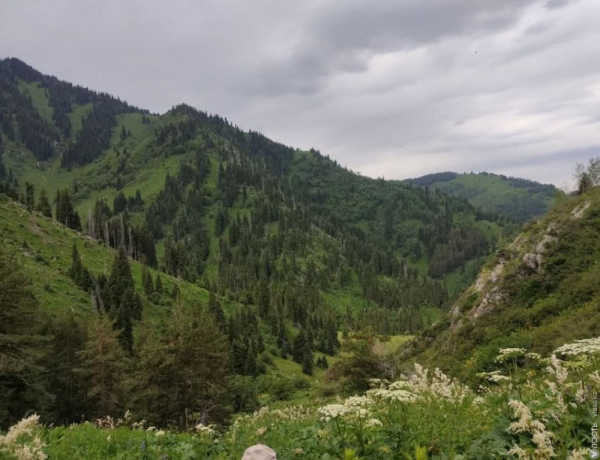The government bets on mountain tourism, disregarding environmental risks and public opposition
More than a decade ago, the government and the people of Kazakhstan were pitted against each other in a standoff regarding the Kok-Zhailau ski resort near Almaty.
The government did everything in its power to ensure that the project, which was proposed by big business, saw the light: the government manipulated public opinion polls, conducted a wide PR campaign, and published glitzy presentations about how the resort would boost Almaty’s tourism potential.
Upon taking power in 2019, President Kassym-Jomart Tokayev froze and eventually canceled the project.
“I forbid the construction of a ski resort on Kok-Zhailau. We do not need it,” Tokayev said then.
The project was then “postponed.” This could ignite a conflict between urban planning experts and the public on one side and the state and business on the other.
And Tokayev meanwhile seems to have changed tack, because last year he ordered the construction of a resort as part of the development of Almaty’s mountain cluster.
The government quickly laid out a comprehensive plan for the development of the mountain cluster and then said they “wrapped up” a public discussion about it — discussions which, in fact, did not take place.
Meanwhile, the same bureaucrats took years to adopt the Water Code, a cornerstone of environmental protection in Kazakhstan.
The updated project was presented to Prime Minister Olzhas Bektenov at the Medeu skating rink, but this presentation was not made public.
What did Bektenov mean when he said "we will go up, closer to the glaciers"? With the project not available to the public, who knows what kind of damage it can cause to the environment.
Obviously, the government will continue to paint its plans for mountain tourism in Almaty as "ecologically friendly." However, we know that the project will entail building new roads, real estate, and infrastructure, to the detriment of the landscape and trees.
Almaty, the largest city of Kazakhstan, is teeming with tourists, but it is still plagued with long-lasting problems, from a lack of street lighting to inadequate public transport. Environmental and air pollution, especially during winter, is a chronic issue.
Large-scale projects either turn into long-delayed operations (take the example of the gasification of the Almaty Thermal Power Plant) or ultimately fail to meet expectations.
The government will need to answer questions about the origin of the major investments in the mountain cluster project (at least 600 billion tenge, or $1.2 billion, according to the first estimates), and crucially about its transparency.
Even if none of the current high-ranking officials intend to live in Almaty, this city and the nature around it deserve careful treatment. The opponents of the Kok-Zhailau development believe this. And Tokayev, at least at the beginning, shared this view.
Осы мақаланың қазақша нұсқасын оқыңыз.
Читайте этот материал на русском.
Власть — это независимое медиа в Казахстане.
Поддержите журналистику, которой доверяют.
Мы верим, что справедливое общество невозможно построить без независимой журналистики и достоверной информации. Наша редакция работает над тем чтобы правда была доступна для наших читателей на фоне большой волны фейков, манипуляций и пропаганды. Поддержите Власть.
Поддержать Власть





